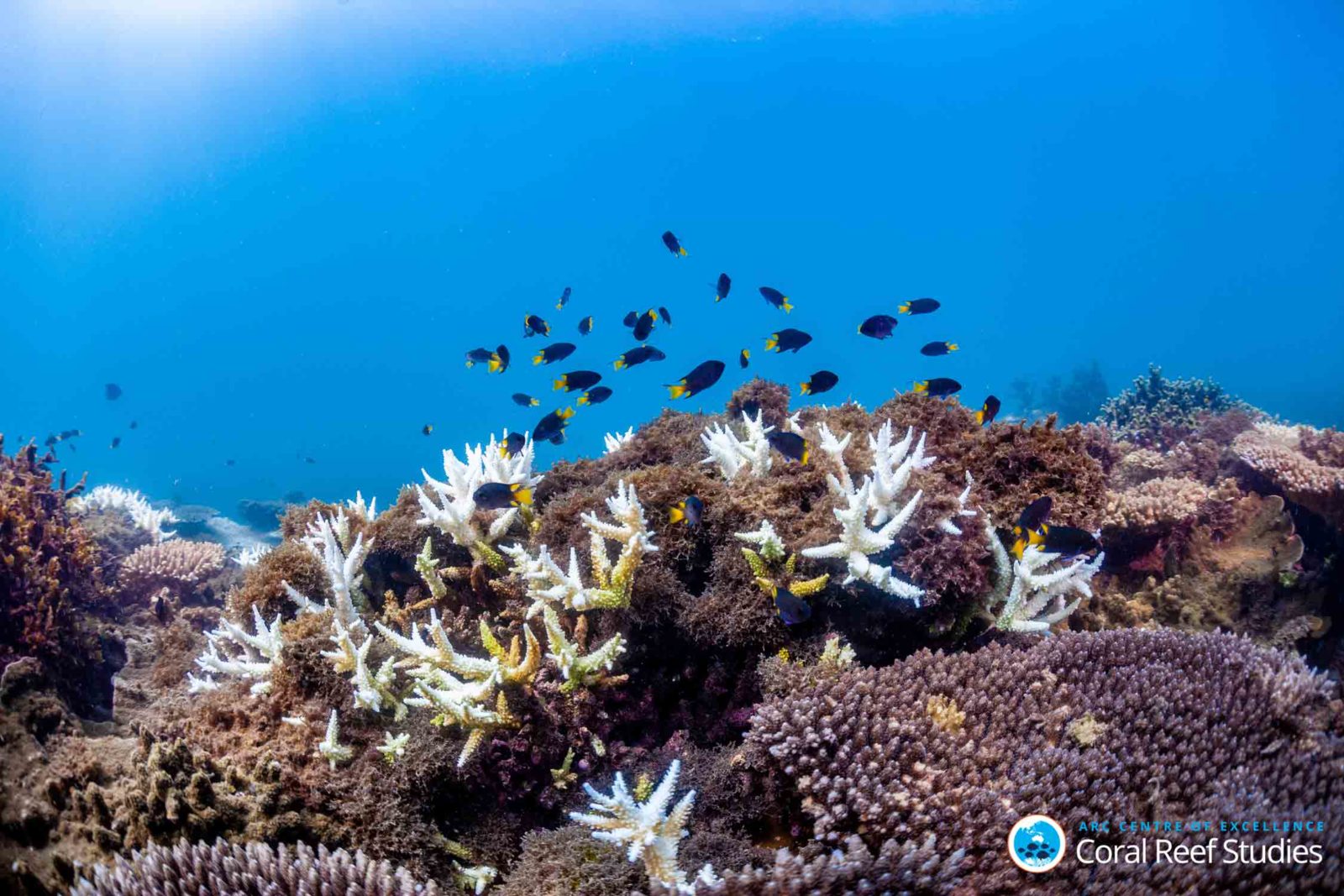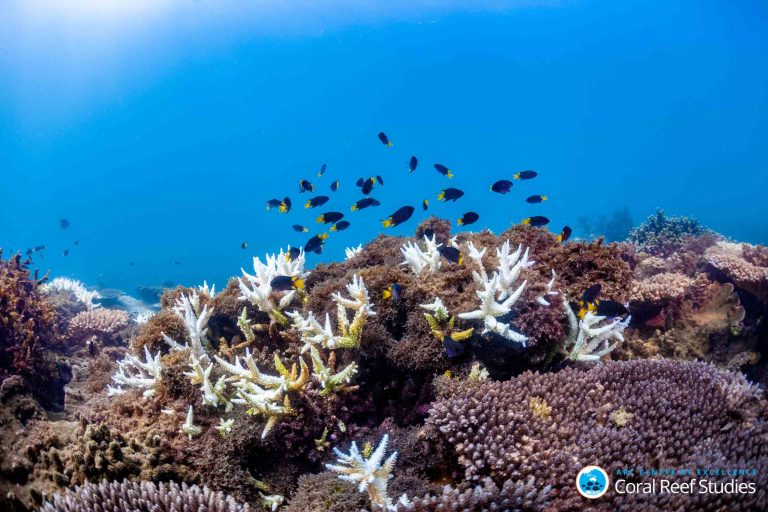DIVING NEWS
The fish feeling the heat

Fish swim over bleached GBR corals in March 2020. (Picture: Victor Huertas)
Some fish are better than others at coping with heatwaves – that’s the conclusion of what is said to be world-first international research using advanced genetic-analysis techniques.
Scientists have tracked how wild coral-reef fish populations responded to the severe marine heatwave in 2016, which they say killed a third of the corals on Australia’s Great Barrier Reef. That event was followed by a second the following year – and a third severe event appears to be just beginning.
“Our study shows that reef fishes are directly affected by heatwaves, but their responses vary greatly between species,” said co-author Dr Jodie Rummer of the ARC Centre of Excellence for Coral Reef Studies at James Cook University.
A fish’s performance and survival depend, say the scientists, on regulation of its “gene expression”.
This is the process by which a gene’s DNA translates into the RNA that controls when and how many proteins are made, and dictates how cells function. Studying gene expression can explain how fish respond physiologically to environmental shock.
Working at Lizard Island, the team tracked changes in the expression of thousands of different genes in five species of coral-reef fish collected at different times before, during and after the heatwave. Concentrating on two species of damselfish and three of cardinalfish, they were able to identify how each species reacted to raised temperatures.
“The spiny damselfish responded to the warmer conditions with changes in the expression of thousands of genes, suggesting it is particularly sensitive to heatwaves,” said co-lead author Dr Moisés Bernal of Auburn University. “Other species appear to be more tolerant, with fewer changes in gene expression.”
“Marine heatwaves are becoming more frequent, more severe, and are further exacerbated by climate change,” said Dr Rummer. “We found the physiological mechanisms the fish used to cope with the warmer waters changed as the heatwave progressed… Over time, the fish may adapt to rising temperatures, or even migrate to cooler waters.”
The scientists hope it will be possible to screen larger number of species in future.
Publication of the research in Science Advances coincides with what now appears to be the Great Barrier Reef’s third major bleaching event in five years.
25 March 2020
The scientist who has become most associated with documenting these events, Prof Terry Hughes from the ARC Centre of Excellence for Coral Reef Studies at James Cook University, is still in the process of carrying out aerial surveys over hundreds of individual reefs.
An official report is expected shortly, but Prof Hughes has already told Guardian Australia: “We know this is a mass bleaching event and it’s a severe one.” He said that it was worse than those of 1998 and 2002, but “how it sits with 2016 and 2017 we are not sure yet.”

